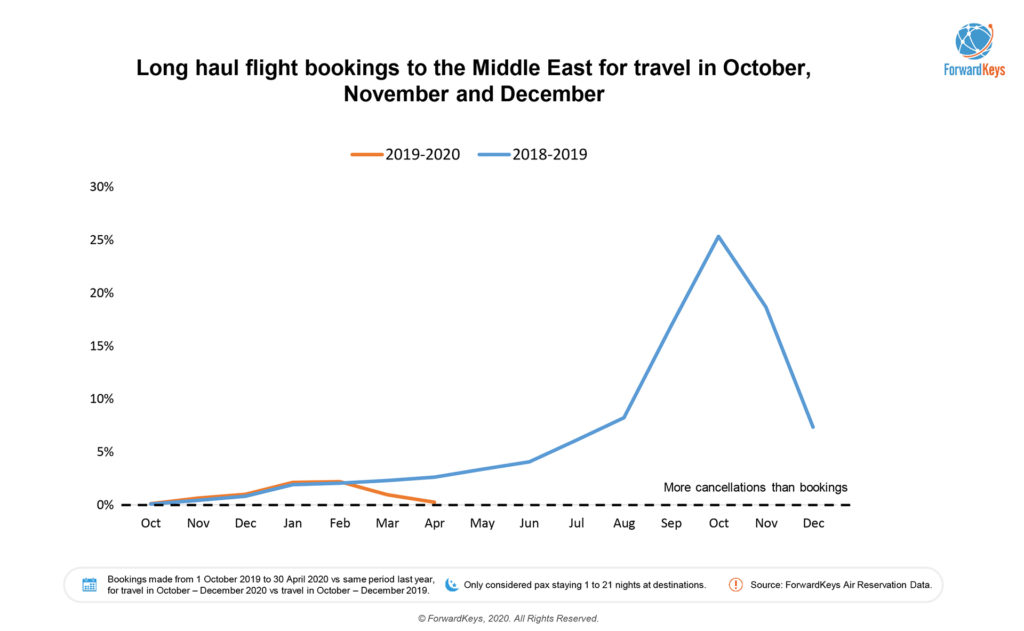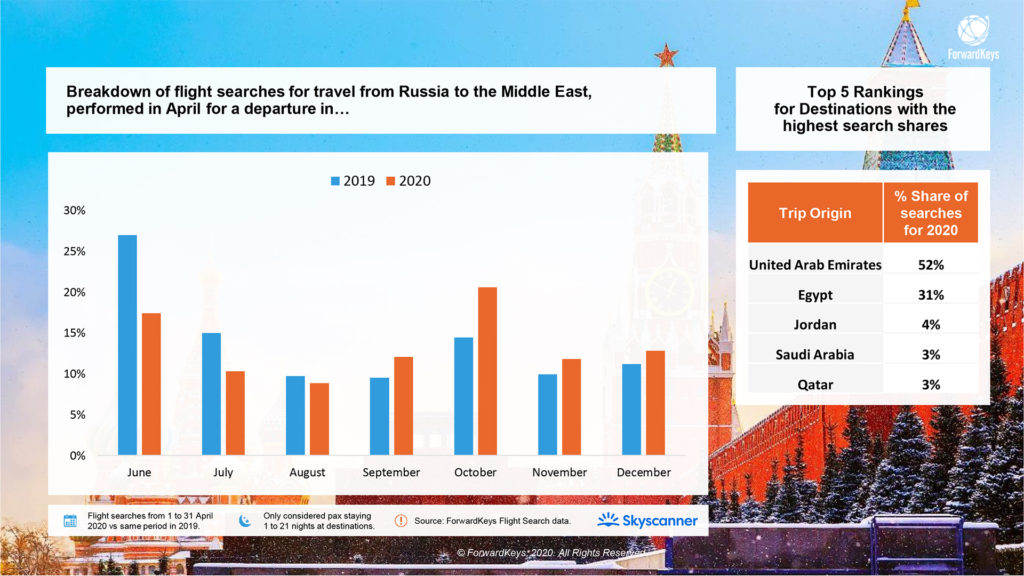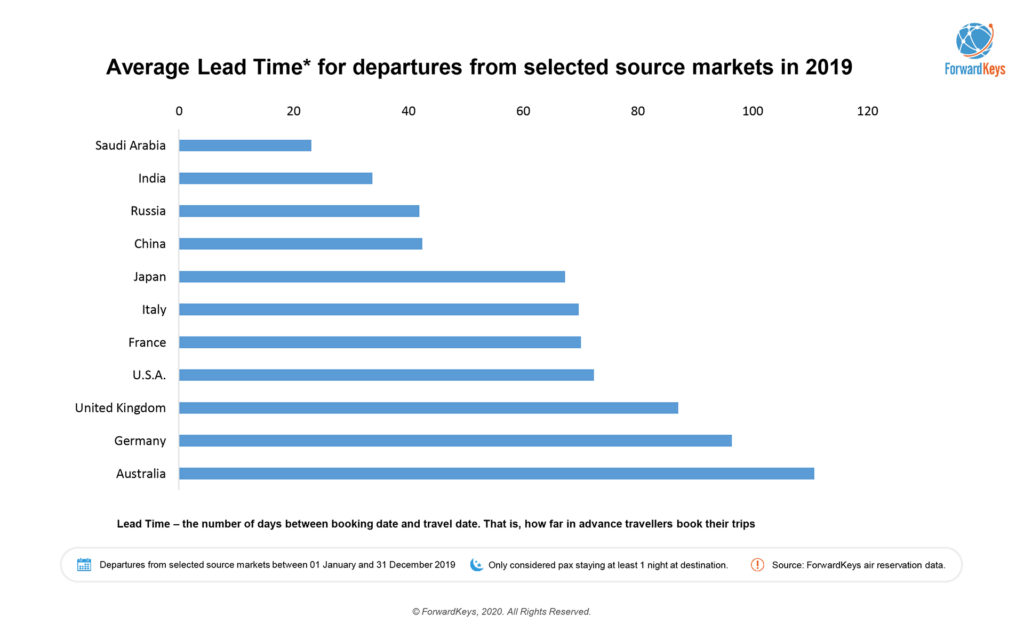ForwardKeys, the world’s leading travel analytics company, latest air bookings data shows the road to recovery is plausible for the Middle East to kick-start this year, despite the imminent drop in air bookings.
Even though international bookings made for a trip to the Middle East dropped by 77% since January 2020, our recent findings are giving a glimpse of promise after the Summer season, more specifically for Q4 as more bookings are being made in comparison to cancellations. And the good news is that our data shows bookings for Q4 usually are made in October.
This has been further supported by a breakdown of flight searches performed in April by key outbound source markets. The data shows a jump in people searching to travel to the Middle East is October and December.
We took the liberty to focus on one source market, Russia, flight searches in April and this is what we found. The favourite departure month is October and the destinations of interest are predominately the UAE and Egypt.
This data reflects that even with the travel restrictions and being in lockdown, people still desire to travel. And once the barriers are lifted from the country of origin and final destination, there will be a demand, making this interim pivotal for travel organisations and businesses in ensuring they are prepared and ready for tomorrow’s traveller.
Understanding your visitor and their needs is something you can focus on. Planning hyper-targeted national marketing campaigns is another. But don’t rely on gut instincts, rely on science.
In this last graph, you can learn which countries require the most and least advance travel planning to the Middle East. It also helps you as a business understand if this source market books last minute or not.
The good news is that all searched origin markets need less than 6 months to plan to a trip to the Middle East, with travellers from India and Saudi Arabia needing just 1 month to plan a trip. Hoteliers, tourism boards and travel operators – roll up your sleeves and re-think your business strategy stat.
One thing that this pandemic has demonstrated is the strength of the travel industry’s resilience and use of modern communication tools, being quick to move traditional trade shows to the virtual arena, business boardrooms to Zoom rooms and create moving digital destination campaigns with thoughtful hashtags. The next progressive step is to use data for BI to back your next steps towards recovery.
Olivier Ponti, biography:
As the leader of the ForwardKeys Insights team, Olivier Ponti is one of the world’s most authoritative experts in travel research and destination marketing. Olivier was educated at Sciences‐Po in Paris where he gained a master’s degree in Economics, and at the Sorbonne University he gained a master’s degree in Tourism Development.
Olivier gives dozens of conference presentations and media interviews a year, cross-referencing ForwardKeys’ considerable data with numerous other sources, to identify new travel trends; forecast future travel patterns; reveal the impact of events on travel and provide deep insights into the travellers of tomorrow.
You may also be interested in…
- Will 2020 define the future of tourism?
- Finding resilience in travel Industry – despite COVID-19
- Seven Points for Tourism Management Organizations to Consider as the Industry Recovers





